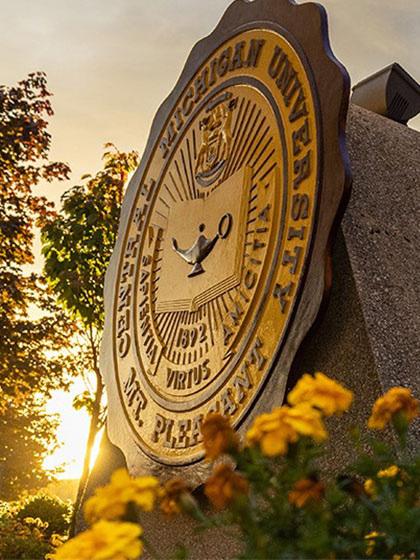

Operations
Buildings
Background
Green buildings are strongly recommended by AASHE since they are usually more energy-efficient and cost-friendly. Fortunately, the 2024 STARS report features CMU's commitment to Leadership in Energy and Environmental Design (LEED) certification.
The following buildings are LEED-certified at CMU:
Biosciences
Education & Human Services
Graduate Housing
Health Professions
Bovee University Center
Ronan Hall
Multipurpose Stadium
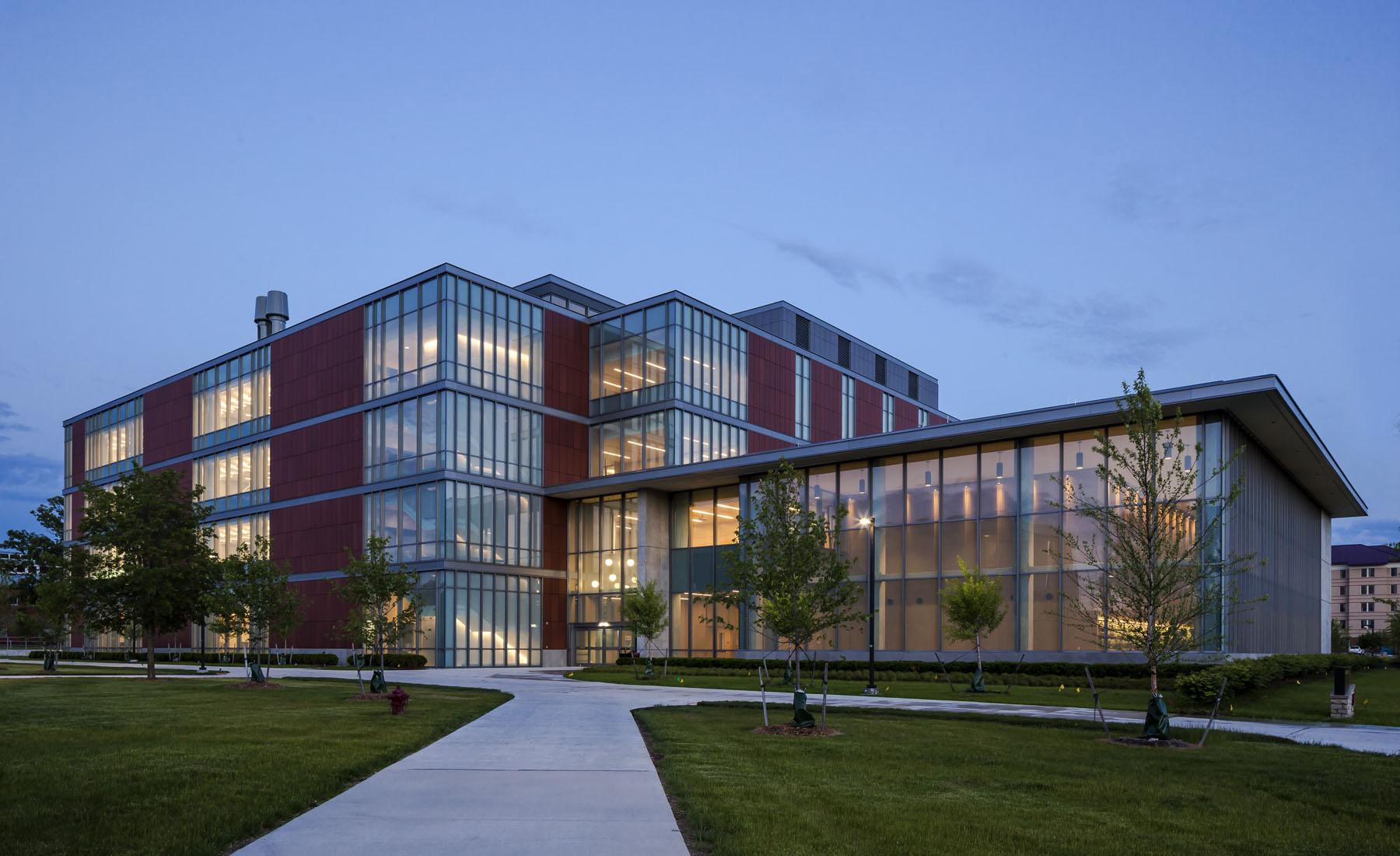
Goal 3
Commit to sustainable building practices for all new campus constructions.
Strategies
• Incorporate sustainable design principles into the planning and development stages of all new campus construction projects.
• Develop clear guidelines to prioritize LEED certification for new campus buildings.
Measure
CMU administration must issue a written statement that depicts its commitment to LEED certification or an equivalent certification group.
Operations
Transportation
Background
Gasoline and diesel-powered vehicles are major sources of GHG emissions and other pollutants that contribute to environmental and health problems. Consequently, AASHE encourages higher education institutions to reduce emissions produced by their vehicle fleet and to adopt more sustainable transportation habits.
Despite being a walkable campus, a 2023 survey found that more than half of CMU's students rely on driving as their primary mode of transportation. More must be done to encourage sustainable transportation at CMU.
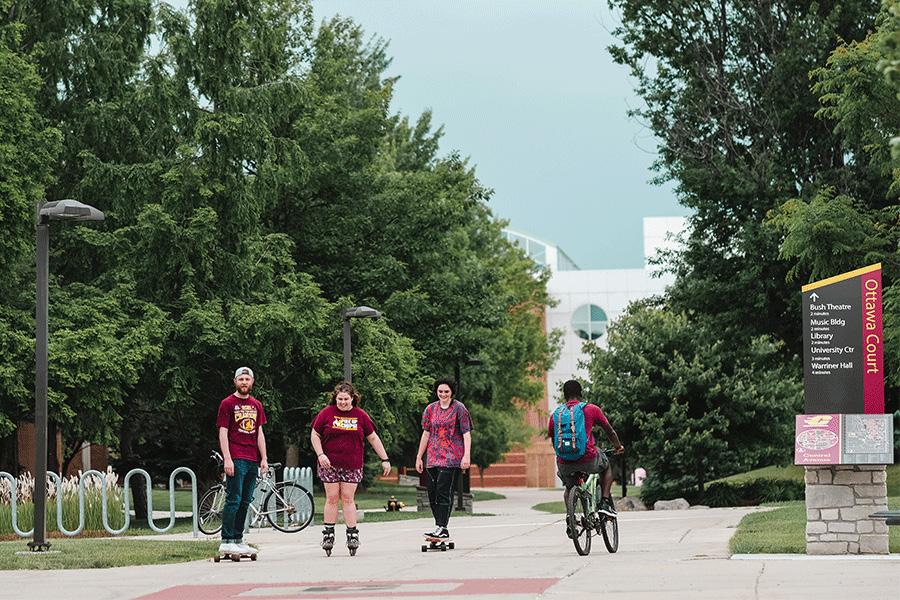
Students enjoying CMU's pedestrian and bike-friendly paths
Encourage more sustainable transportation at CMU.
Establish a program that encourages motorless travel on CMU's main campus (e.g., a bikeshare program).
Track student and employee commuting behavior via fall survey and AASHE STARS.
Operations Waste
Background
CMU is fortunate to have several ongoing waste reduction efforts, such as the university's residential dining composting initative, residential recycling programs, and its annual participation in Campus Race to Zero Waste (CR2ZW).
However, many of these initiatives are practiced inconsistently throughout campus. Furthermore, a 2023 survey revealed that while over two thirds of students care about waste reduction efforts, only about 15% understand appropriate recycling habits.
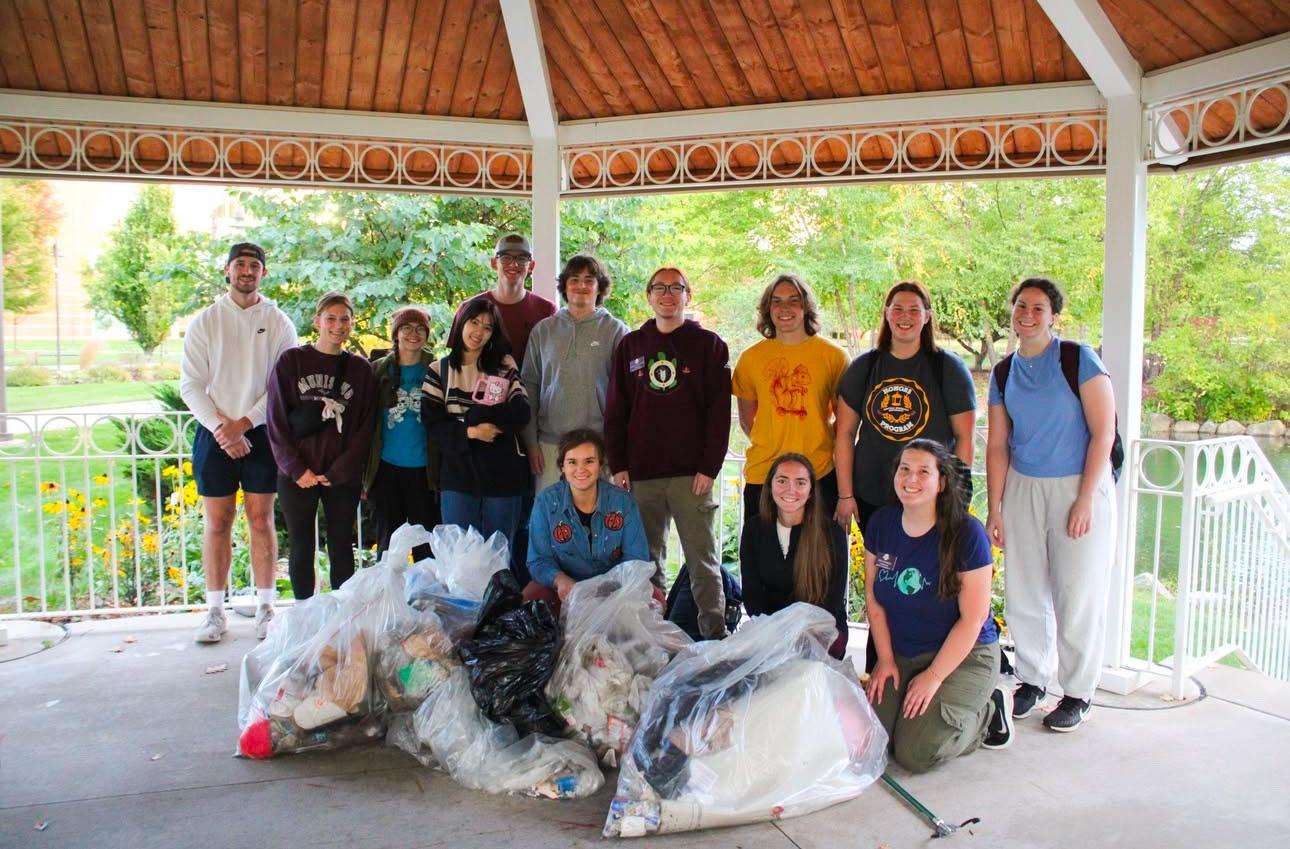
Goal 5
Ensure that waste reduction efforts are practiced consistently throughout campus.
Strategies
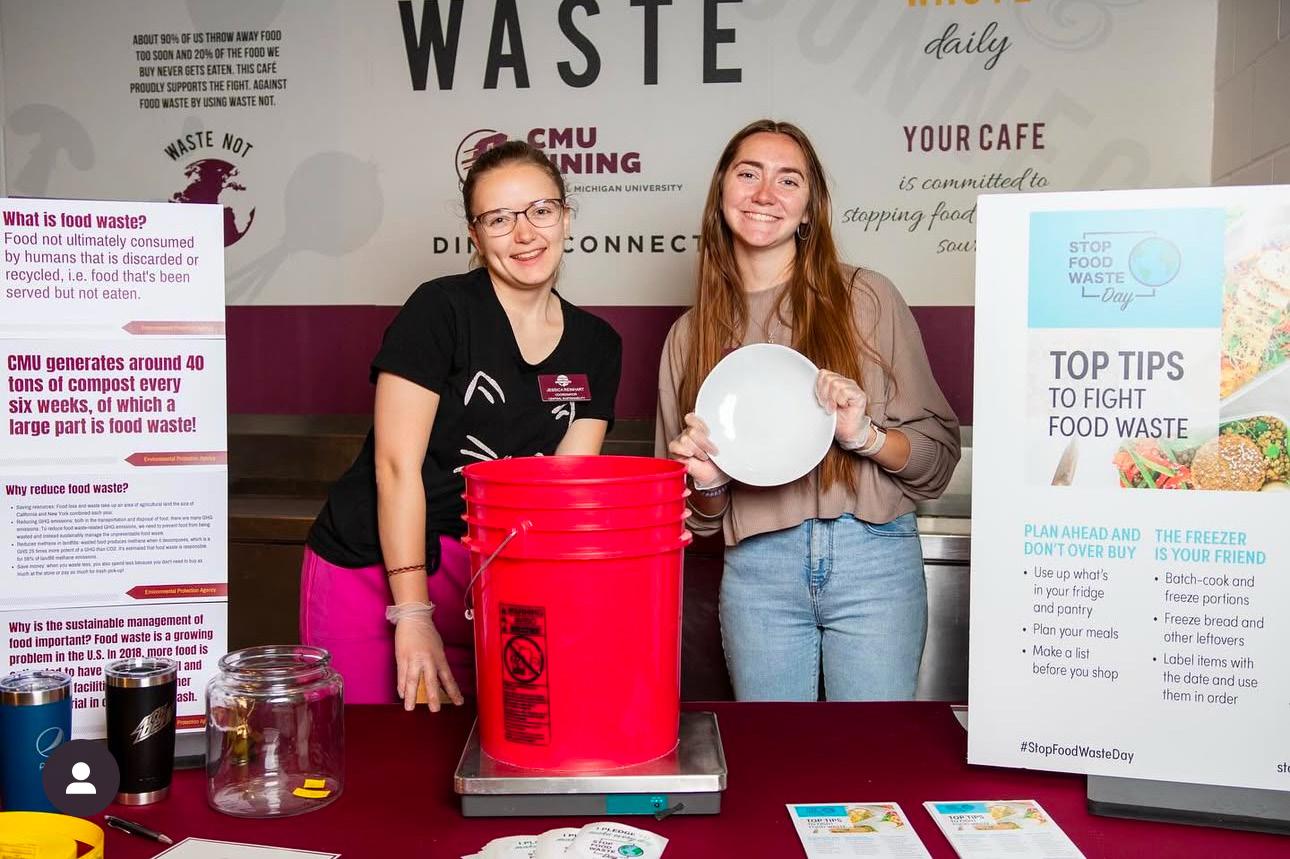
• Require each residential hall to facilitate an ongoing recycling program.
• Conduct regular audits of departments' purchasing and disposal habits.
• Encourage dining spaces to offer reusable or compostable packaging options.
Measure
Track CMU's waste habits via CR2ZW, surveys, and AASHE STARS reports.
Academics
Curriculum Background
AASHE encourages HEIs to establish structured educational programs and courses focused on sustainability. According to the 2024 STARS report, CMU offers over 5,000 courses, with only 8% of them explicitly referring to sustainability. Additionally, a survey CS administers every fall also found that only 39% of students feel that their academic education at CMU has informed them enough about sustainability and environmental issues. Consequently, there is an obvious need to increase students' knowledge of sustainability at CMU.
Fall 2024
Survey Data

Goal 6
Ensure students feel well-informed of sustainability and environmental issues through their education at CMU.
Strategy
Establish formal incentives for instructors to teach sustainability in their courses.
Measure
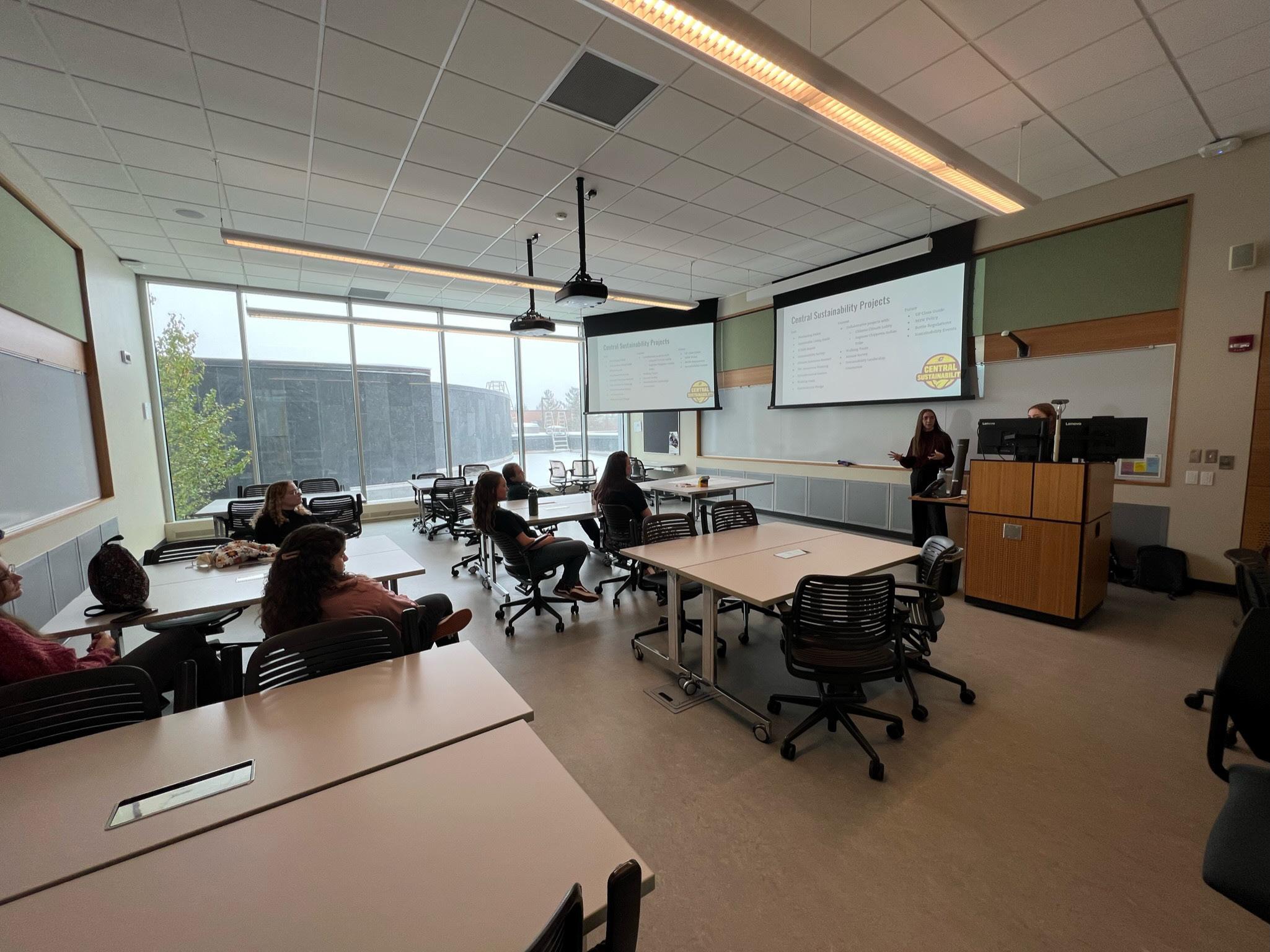
Issue fall survey to track progress of students' academic knowledge of sustainability, aiming to have at least 50 percent of students feel well-informed by 2030.
Academics
Research
Background
CMU must work to advance its research in sustainability-related topics and environmental issues. While the 2024 STARS report found that over half of the university's departments performed sustainability research from 2020 to 2022, less than 15% of the university's employees conducted sustainability research during this period. CMU can amplify the impact of its research and innovations by continuing to address pressing sustainability issues.
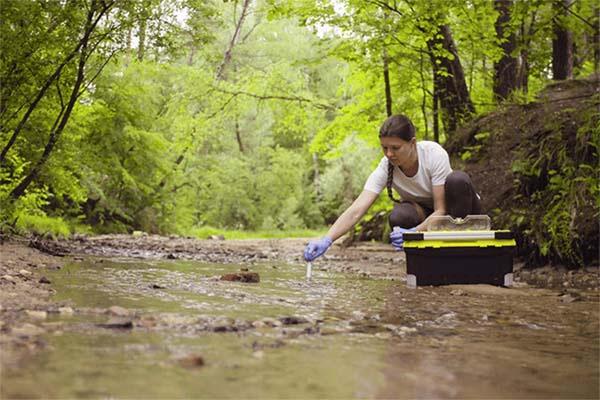
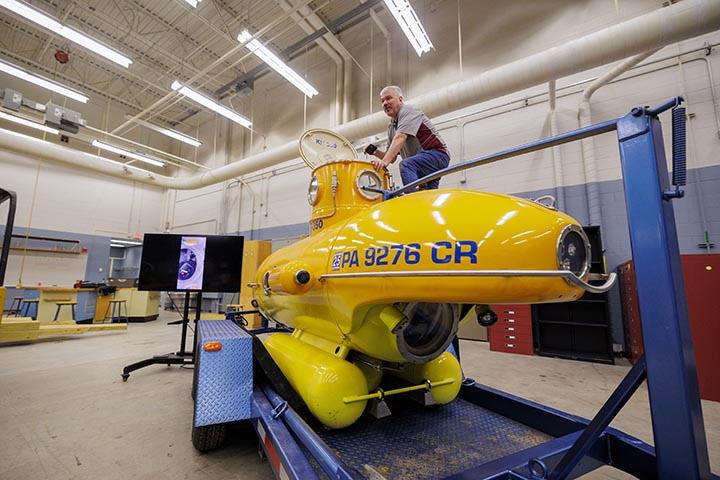
Goal 7
Enhance interdisciplinary sustainability research at CMU.
Strategies
• Provide formal incentives for instructors to engage in sustainability research.
• Encourage students to gain experience in sustainability research through credit-based or monetary incentives.
Measure
Increase sustainability research performed by faculty to 25 percent by 2030.
Sustainability research blends diverse disciplines for innovative solutions.
Engagement Campus Outreach
Background
AASHE provides recommendations for institutions seeking to improve the engagement of its students and faculty with campus sustainability efforts through sustainability learning experiences outside of formal curriculum.
CS has made large strides to engage with the campus and get the community excited about sustainability. However, more can be done. The following goal and strategies aim to strengthen CMU's engagement with sustainability.
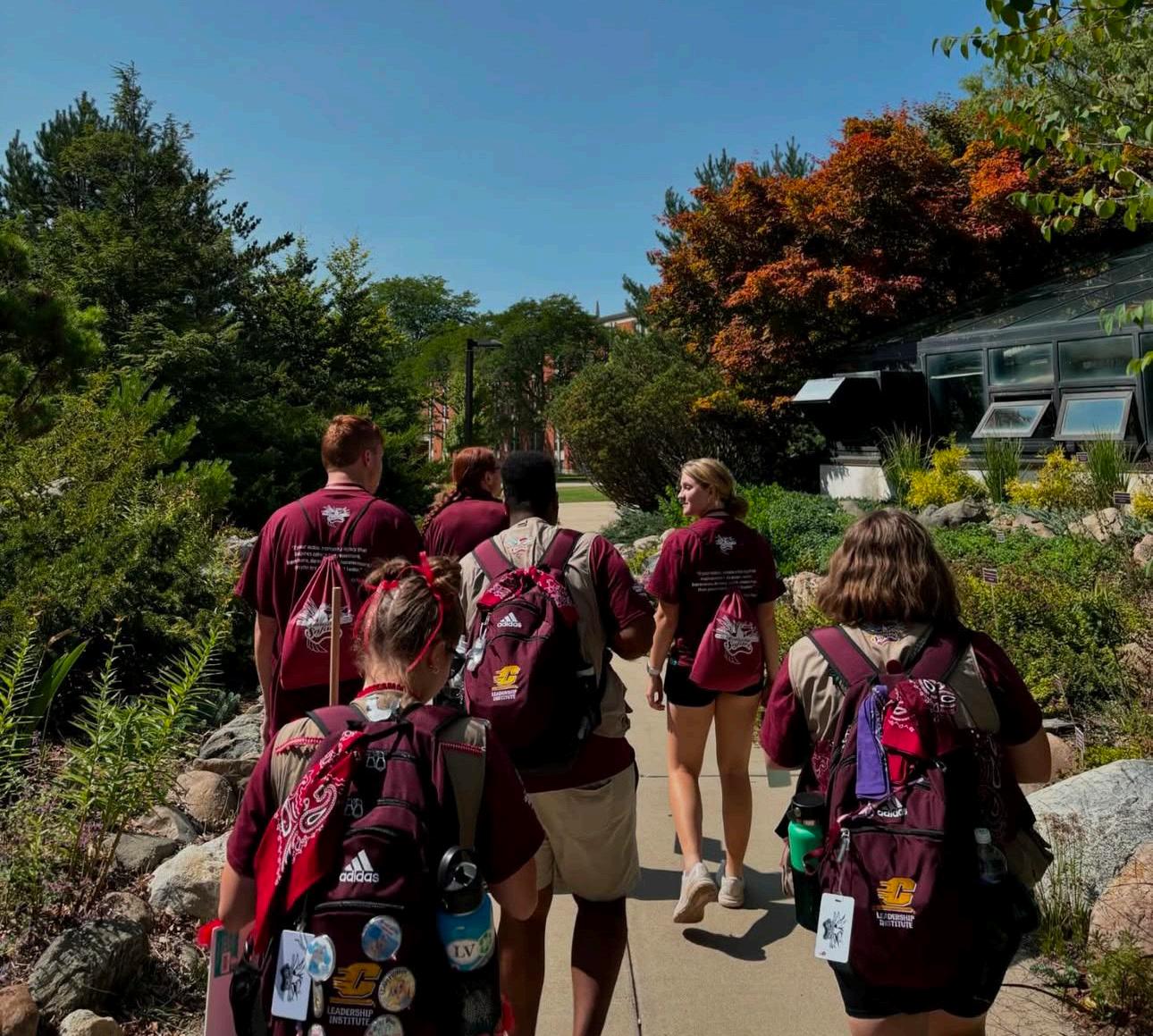
CS delivering sustainability tours to incoming students
Goal 8
Improve campus engagement with sustainability.
Strategies
• Incorporate CMU's sustainability effort into student orientation programming.
• Have Central Sustainability coordinate presentations and tours to offer to the campus community.
• Support sustainability-oriented student organizations.
Measure
Have 75% of campus community express involvement with sustainability efforts by 2030.
Engagement
Public Outreach
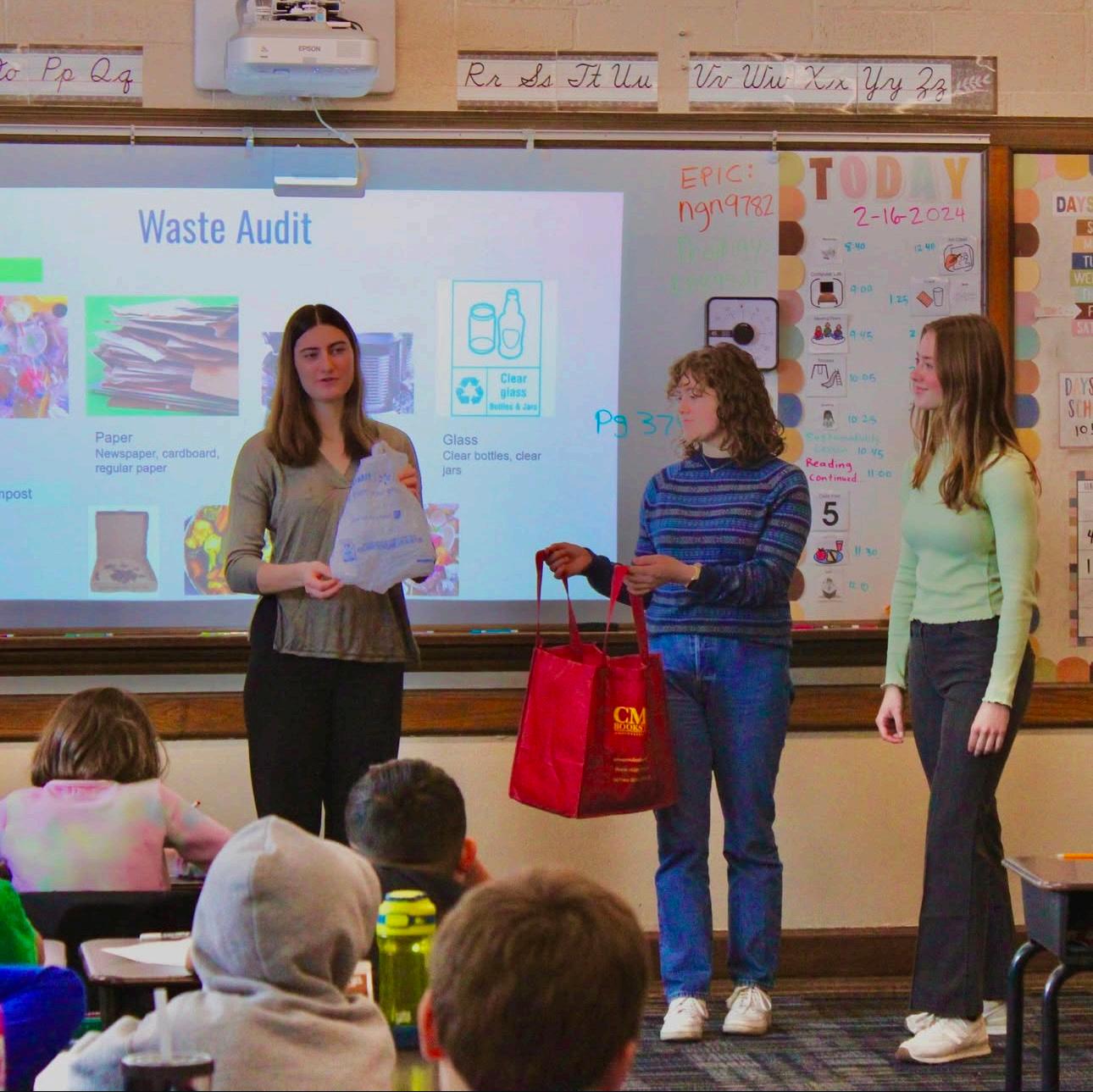
Goal 9
Strengthen engagement with community through partnerships and service.
Strategies
• Actively participate in community initiatives.
• Support the development of service-learning programming.
Measure
Ensure 50% of students report feeling connected to their community by 2030.
Background
Higher education institutions are key in fostering sustainability through outreach, partnerships, and service.
CMU has strong connections with groups like the Saginaw Chippewa Indian Tribal College and Central Michigan Sustainability Partners. However, a survey found that less than a third of students feel connected to their community. A key goal is to strengthen student engagement with local organizations, enriching the college experience.
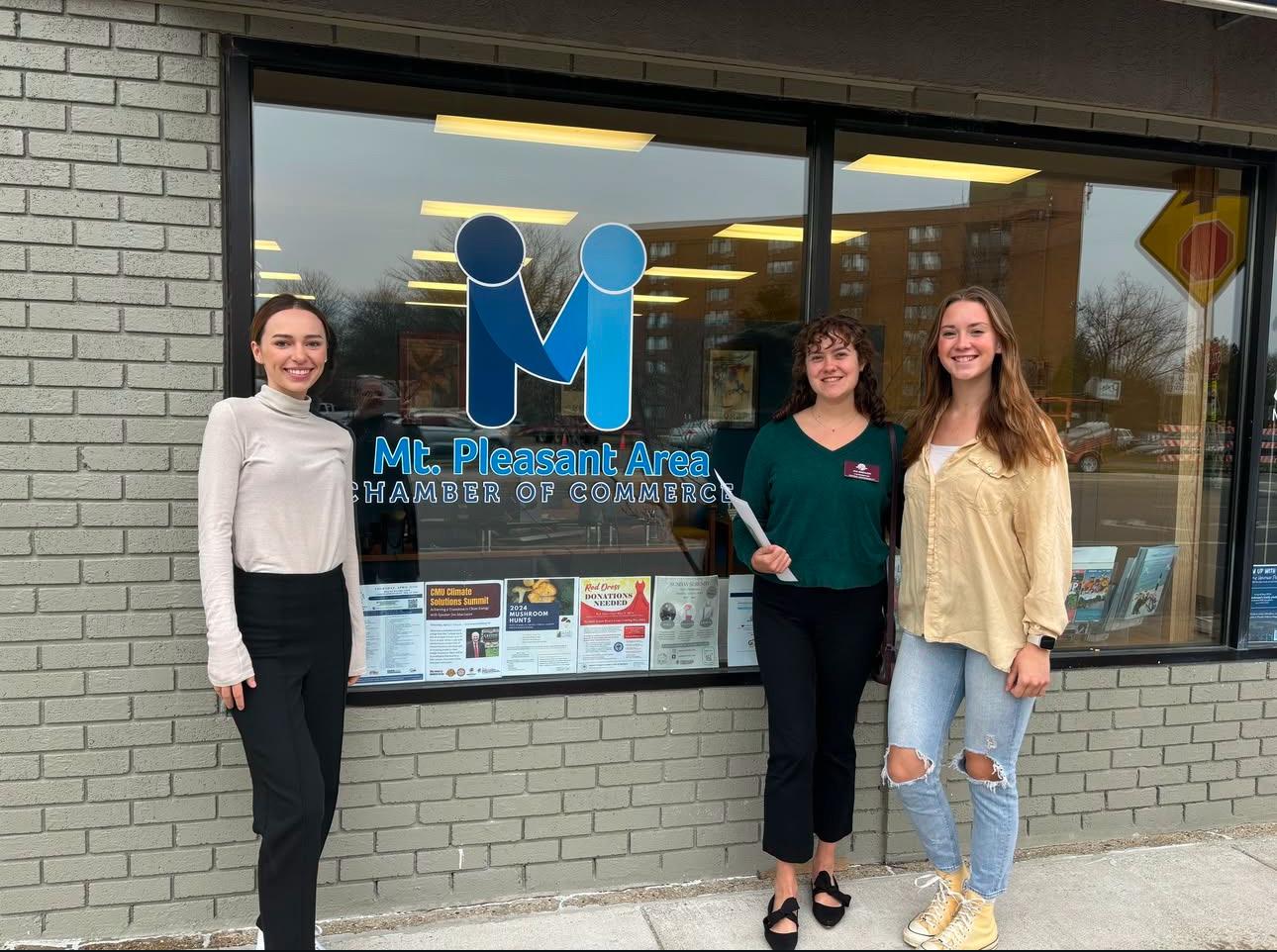
CS engaging with the local community
